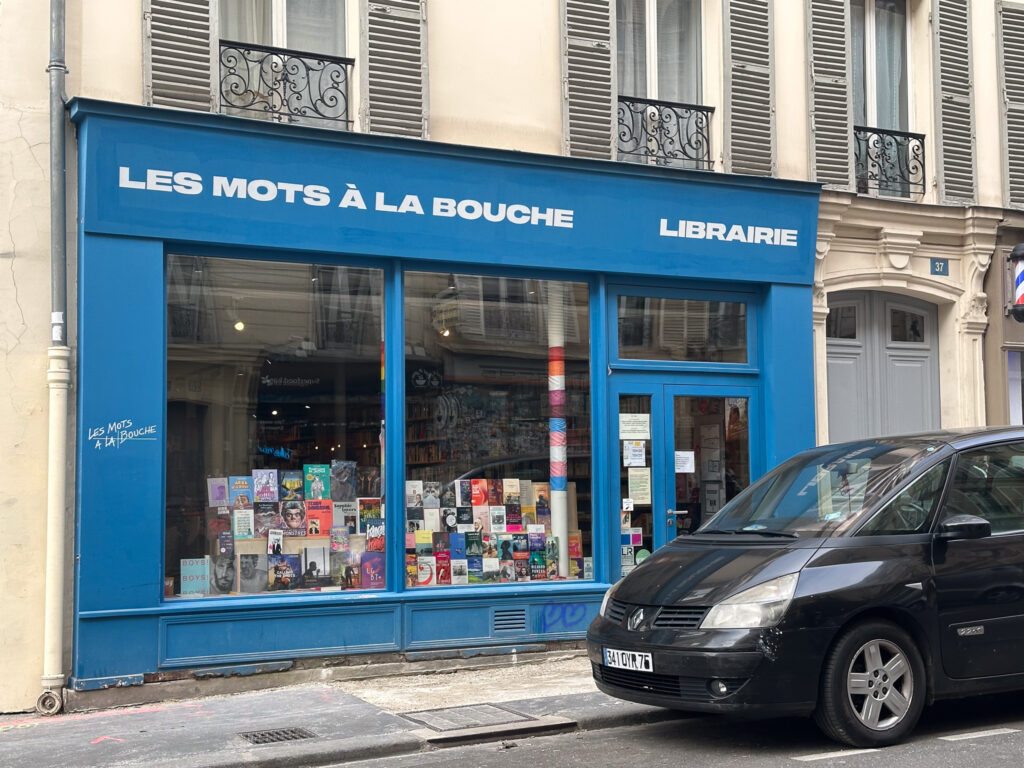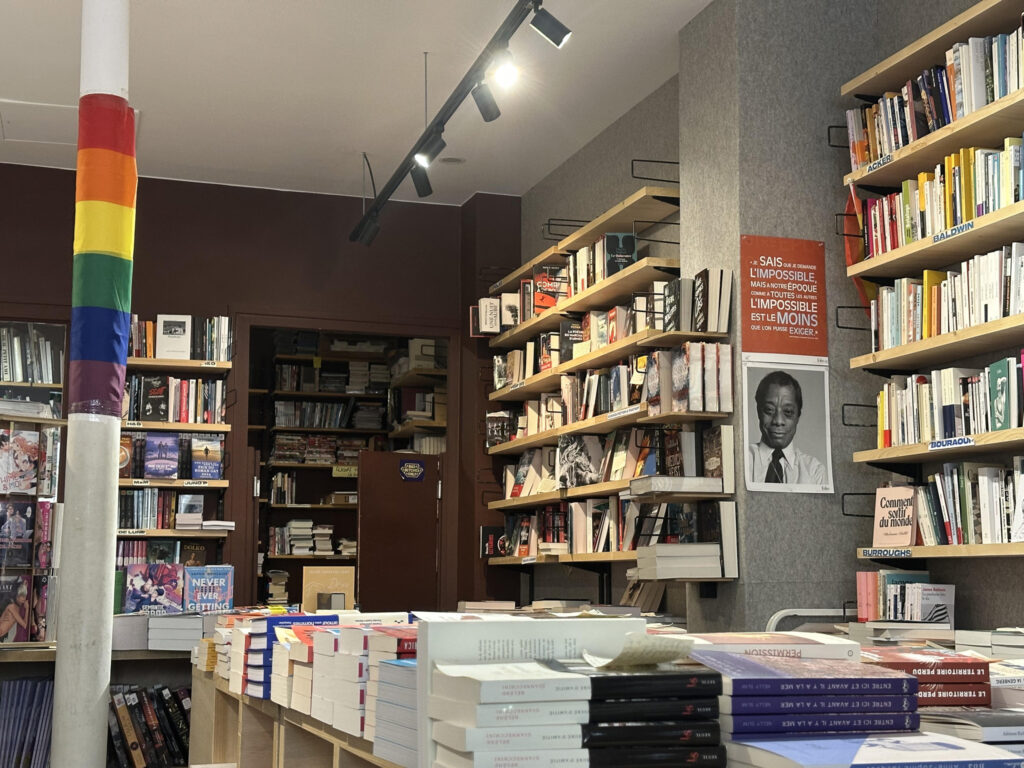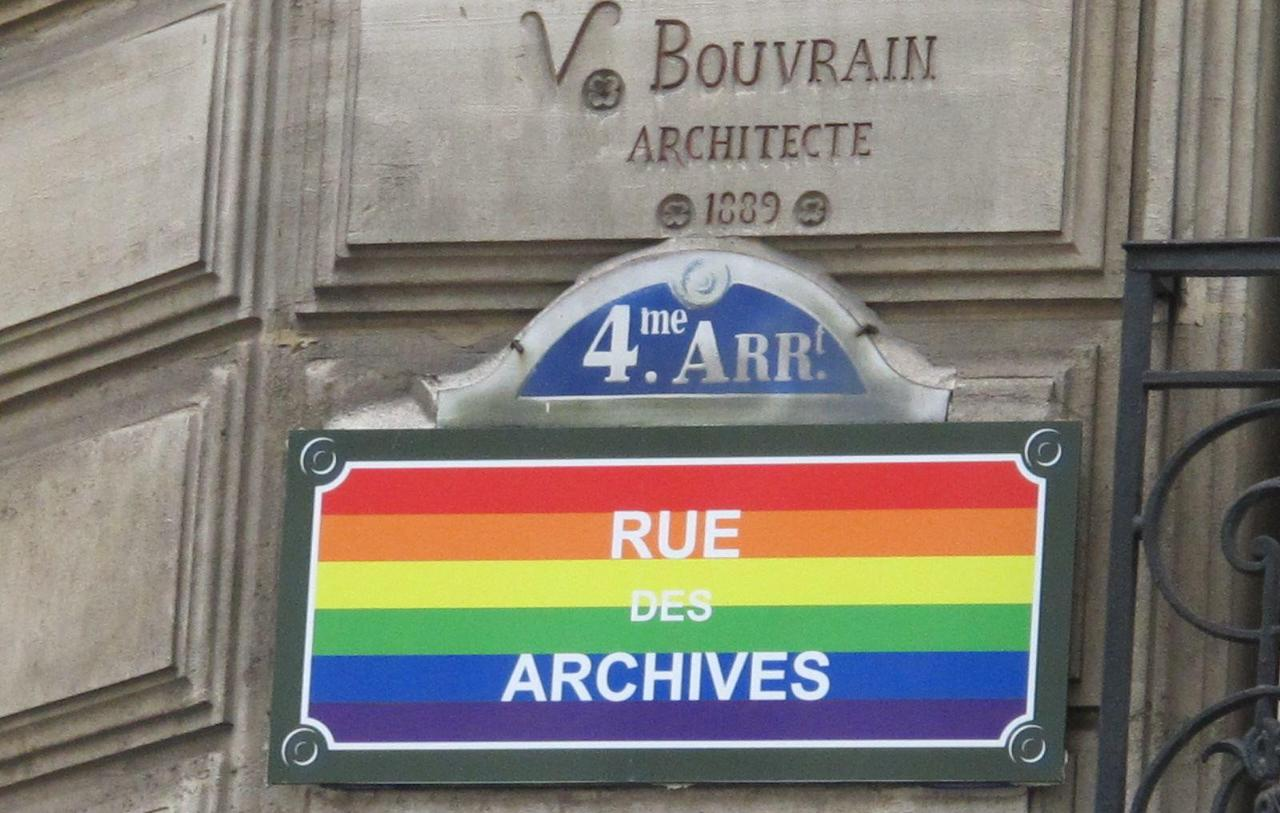Despite the low temperatures typical of a late February night, the atmosphere inside Le Tango Paris was hot and sweaty as the crowd, drowned in dim red lights, danced to the booming music of Shakira’s “Whenever, Wherever”. When the lyrics “we’re meant to be together” played, same sex couples inched closer together under the disco ball overhead.
Though Le Tango Paris was at the brink of closing down in 2020, it still draws an LGBTQIA+ crowd in the heart of the Marais because of its community which fought to save the beloved gay night club.
The Marais has been known as the “gayborhood” of Paris since the late 1970s. However, following a similar path to New York City’s West Village, the once bohemian area has become trendy, drawing an influx of luxury brands and boutiques over the past years. The resulting gentrification has forced many independent queer spaces and residents to move out.
The LGBTQIA+ bookstore Les Mots à la Bouche was forced to move in 2020 because of increased rent. In place of the old beloved bookstore now stands the famous footwear brand Dr Martens. Other upscale stores such as Nike, Lacoste and Muji have infiltrated the neighborhood displacing older, community based shops. This change has resulted in the neighborhood attracting a more diverse range of tourists as opposed to exclusively queer visitors like it did formerly.
“When we left in 2020 I remember one old gay customer still living in the neighborhood and telling us, ‘I’m the only guy renting in my building,’” Nicolas Wanstok, the bookstore’s co-owner, said. “All the rest is Airbnb.”
Les Mots à la Bouche has now relocated to Paris’s 11th arrondissement, where a few other LGBTQIA+ spots including Violette and Co, Gibus Club and Bonjour Madame are also present.
“There’s a lot of gay and lesbian people living here who left the Marais like 5 to 10 years ago,” Wanstock said about the bookstore’s new neighborhood. “There is kind of this village atmosphere here, not queer village as in the Marais before, but people knowing each other.”


In addition to the physical changes to the queer community in the Marais, Wanstok also points out changes in the sub demographics within the queer community present itself. They believe that even as a LGBTQIA+ neighborhood, the Marais now caters more to “the rich, gay, cis guy” rather than queer kids who are still finding their place in the community. When the bookstore moved out of the Marais, they saw an increase in younger queer kids who formerly strayed away from visiting them in the Marais because of the more privileged crowd.
Wansock argues there’s more to a queer neighborhood than rainbow painted streets and gay-friendly bars. It’s a safety net for queer people. In France, anti-LGBTI+ acts increased by 13% in 2023, according to the Ministry of the Interior. “When we lose this kind of neighborhood, we also lose safety, in a way,” Wanstok said.
The closure of numerous community spaces like Les Mots à la Bouche forced Bryan Pirolli, founder of an LGBTQIA+ tour company “the gay locals”, to heavily redesign his tour plans of the Marais since he first started giving them in 2015.
“You kind of look at the places that you used to go to and think, ‘Oh, that’s right, we can’t even start or end at Open Café because it closed last summer,’” Pirolli said about a former emblematic gay bar in the Marais. “It really makes you rethink the geography of what we are doing now. Is the tour just about bars? No, and it never was.”
Pirolli believes that distinctly gay neighborhoods are especially important to have in big tourist cities such as Paris because young people who come from smaller towns or more conservative parts of the world such as Southeast Asia “could not ever conceive of seeing a rainbow flag or going into a bar and just being who they are.” That’s something he believes people living in Metropolitan cities take for granted.
Still, Pirolli maintains a positive outlook on the spreading queer community across other arrondissements in Paris.
“I think while the Marais is going away, and that needs to be addressed, the proliferation of other [queer] venues across the city is a positive thing,” Pirolli said.
